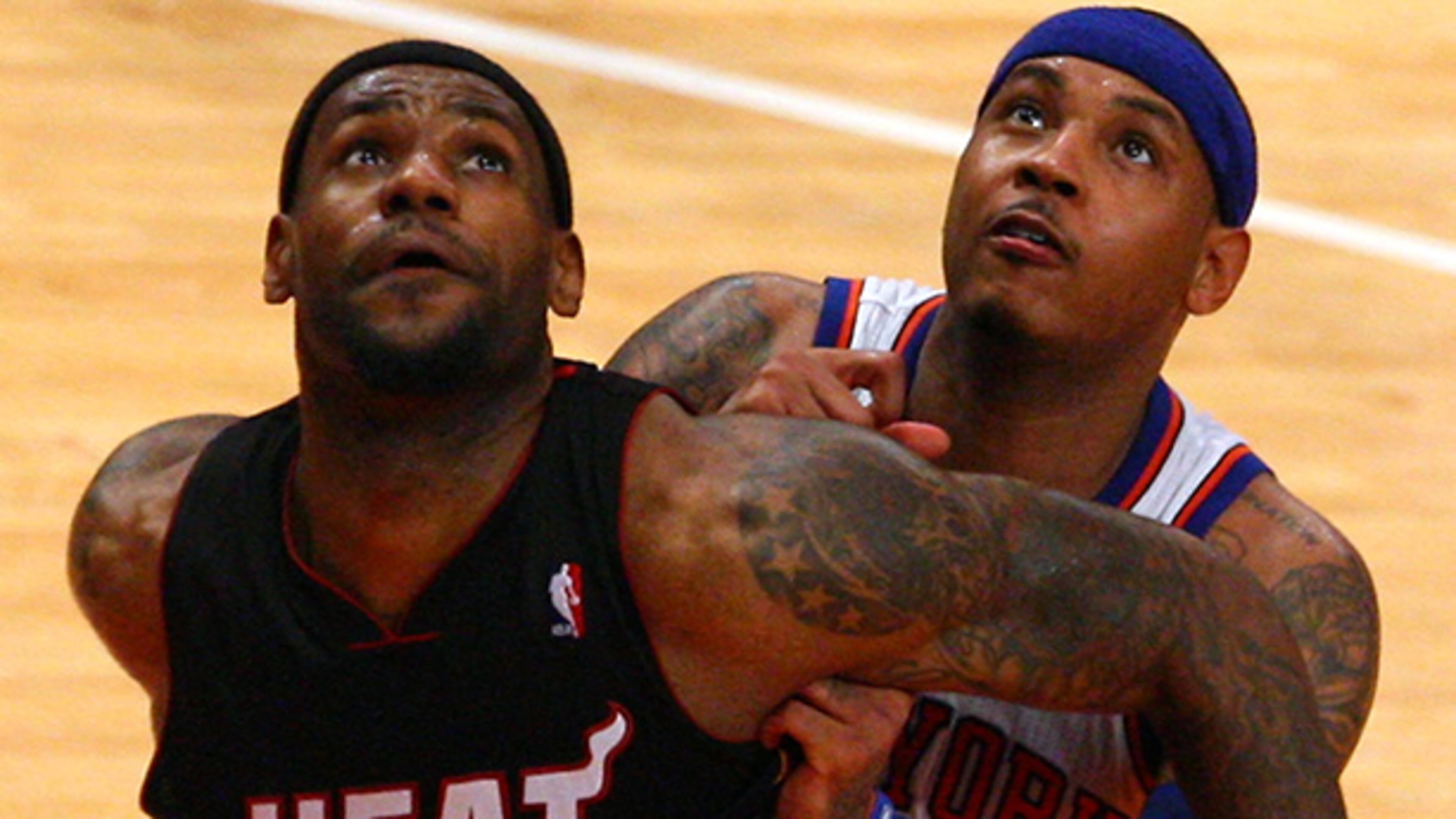Mike Check: 33 million reason$ for LeBron and 'Melo to stay put

The Heat’s LeBron James and Carmelo Anthony of the Knicks have opted out of their respective contracts and decided to become free agents. NBA salary-cap rules stipulate that the players can re-sign with their current teams for about $129 million over five years or join another team for four years at $96 million.
This means James would have to give up about $33 million if they want to switch teams (the exact amount depends on adjustments to the CBA next summer). Rational human beings tend not to forfeit that kind of money--especially those like James and Anthony who are already paid below true market value because of salary restraints.
But we are talking about sports, where tribalism and sensationalism rule, so rationality has little to do with the frenzy surrounding those two players becoming free agents.
Hopeful fans are wishing that James or Anthony might join their favorite team. Media are happy to write and talk about the possibility those players will join new teams because such speculation draws eyeballs. James and Anthony like the frenzy, too, because it puts pressure on their current teams to improve their rosters.
But for all of the hoopla about superstar players changing teams and giving up tens of millions of dollars to do so, it's happened only once: Dwight Howard, fed up with playing with Kobe Bryant, left $30 million on the table with the Lakers to join the Rockets last summer.
It’s true that James, Dwyane Wade and Chris Bosh did take less than the maximum in order for the math to work for all of them to play for the Heat. But they gave up about $15 million each . That’s a lot, but it’s not $30 million. Plus, they signed shorter deals with opt-outs so they could cash in again now if they chose.
The difference between the maximum a player's current team could offer (Bird rights) and what another team could offer used to be less. Players could even take their Bird rights with them if their current team agreed to a sign-and-trade deal, which is what happened when James joined the Heat.
But NBA owners—alarmed after James, Wade and Bosh all went to the same team—won concessions in the last labor agreement to make the spread between the Bird rights max and the regular max much larger. The new CBA also eliminated the ability of players to take their Bird rights with them in a sign-and-trade.
(Aside: Doesn’t it warm the heart to see professional franchise owners, the ultimate capitalists, embracing price controls and revenue sharing while complaining about “competitive balance” for their monopolistic enterprise? After all, why should owners have to retain talent by actually making their franchise attractive when they can just make the financial penalty for the talent so heavy that they are essentially forced to stay? Why should teams in small markets move to larger ones or bad franchises work to become good ones when they can just sit back and be takers?)
Anyway, the point is I don’t believe players such as James and Anthony really will leave so much money on the table. It’s easy for people with selfish motives to say they make so much money they should just take less. “What’s the difference between $129 million and $96 million at that point?” is the common refrain.
Well, the difference is $33 million and for most of us that’s an unfathomable amount of money. I don’t know for sure but I’ve got to think that for people who already have multiple amounts that is still a hell of a lot of money, and that’s why Howard so far still is the only one to forsake it.
Hawks fans know how this works. Back when Joe Johnson was a free agent, every single national report said he would leave the Hawks for another franchise. I was certain he wouldn't go elsewhere if the Hawks offered him a max contract worth about $27 million more than what others could offer.
Even after the Hawks did offer Johnson the max, there were still a handful of stories insisting Johnson might leave because of market size, endorsements, state taxes and all of the other reasons media and fans cling to when they want to keep this kind of story going.
Johnson took the money and stayed, of course. That’s how it almost always turns out.


